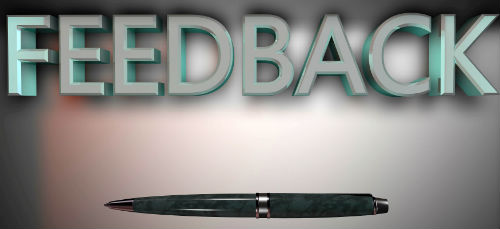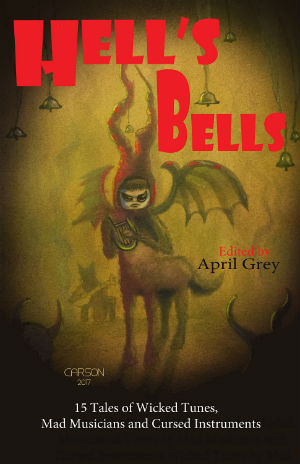Writing Advice:
A case study by Jake TS Wryte, Flash Fiction Magazine writing course student
Quick links on this page:
Jake TS Wryte is a writer who undertook the online writing course offered by Flash Fiction Magazine.
In this guest post, Jake talks very openly about his experiences with the How to Write Flash Fiction with Skill writing course. He's kindly shared some of the exercises he undertook and critiques he received through the course's mentoring process.
He also shows how he took constructuve criticism on board and made changes to improve his writing, ultimately selling his stories and seeing them published. This forms a case study that clearly illustrates what you can gain by undertaking online and correspondence writing courses.
Shannon and Mark, who run the Flash Fiction Magazine courses, have very kindly offered my website readers a discount on the online writing courses they offer.
To make use of this special offer, simply use the following discount code to receive 5% off the price of any course you purchase from them: CHRIS
Flash Fiction Magazine also offer a free taster course, so you can see if you like their style prior to making a purchase. You can try their free writing course here.
I hope you enjoy Jake's post. As always, comments are welcome – please see the form at the bottom of the page.
My name is Jake TS Wryte and I'm an author of flash fiction. In March 2017 I made a decision that was sure to change the course of my life forever.

Jake TS Wryte, writing course student
I grew up in different cities all over South Africa, but have my fondest memories on the farm – smack in the middle of nowhere. I'm a qualified audio engineer and played in a thrash-metal band until I took up farming. My passions are writing, reading, guitar, and anything that gets me in touch with nature.
Having time to write was an issue, as I worked from 05:00 until 22:00 or 23:00 almost every day. I had one day a week to rest. I used it to write.
Then, the opportunity of a lifetime arrived: I was asked to be the manager of three of the most profitable farms in the area. This meant even longer hours! A month after accepting the offer I came to a decision. The work was exhausting – it wasn't what I wanted to do with my life – so I quit and decided I was going to write full-time.
To me, writing isn't a hobby or something I like doing occasionally. It's something I want to devote my life to.
On April 1st, 2017 – yes, April Fool's Day – I received an email from 101 Words, the micro-fiction division of Flash Fiction Magazine, saying that my story 'Raign' had been accepted for publication. My first thought was, This is the cruelest April Fool's joke ever! Turns out it wasn't a joke at all.
'Raign' was the first story I submitted to them – a story I spent little time on crafting, but bled my soul into one midnight, after finishing what would be one of my final shifts on the farm.
Over the next few months, I published three more stories with 101 Words.
In addition to providing daily micro and flash fiction stories directly in my inbox, Flash Fiction Magazine also provides authors with an amazing 'Authors Only List', where they give great tips on the craft of writing. I devoured these like crazy. I practised and applied the tips to my writing, but something was always missing.
Running out of cash and not getting any of my flash fiction and short stories published for payment, I knew I had made the biggest mistake of my life – I should never have quit such a promising career in farming. Writing was much harder than I had anticipated. And, to make matters even worse, my family – who all frown upon the idea of being an artist of any kind, especially a writer – were quick to say, "We told you so."
To say I was depressed is an understatement.
One morning – 6th of July 2017 – while contemplating whether I should write for more publications or give up and apply for a job, I received an email from Flash Fiction Magazine that I couldn't ignore. The email informed me of the How to Write Flash Fiction with Skill online course.
By this time I had almost no money left. I despaired, because I couldn't afford to enroll. I then did something I'd never done in my entire life: I borrowed money to pay for the course. It was a risk I was prepared to take.
The course tutor is called Mark Anderson. Mark is also the managing editor at Flash Fiction Magazine and an English professor. He holds an MFA (Master of Fine Arts) in creative writing.

Mark Anderson - editor of Flash Fiction Magazine and writing course tutor
Starting the course, the first thing I noticed was Mark's great presentation style. It was engaging and interesting. The second thing that became apparent was Mark's expertice and knowledge.
Mark's teaching style was incredible. He managed to 'dumb' himself down to my level and teach me as though he understood exactly how my mind worked and how to get through to me. I had AHA! moments from the get-go and peppered Mark with tons of questions.
Knowing that editors are busy, I expected to have to wait a while before receiving answers. However, Mark, and Shannon (who runs 101 Words), responded within hours. They also made notes on any suggestions or ideas I had, whether good or bad, and continued to do so throughout the course.
One of my questions to Mark related back to a submission I'd made a couple years ago. The editor of the literary magazine sent me back a personal response detailing why they were rejecting my story.
One of the biggest culprits was dialogue. The editor felt my dialogue was uncharacteristic, not believable, and consisted of back and forth bantering that had no place in the story. So, during the course, I asked Mark, "How do I make sure my dialogue serves a purpose?"

Mark's answer was a bit frightening and not entirely what I expected: "One strategy I recommend is to cut out all the dialogue after you've completed a draft of your story to determine what, if any, essential information is missing without the dialogue."
I tried the exercise in a story I was about to submit for publication. Though my story was rejected, here's a part of the feedback I received from the editor: "The dialogue was sizzling."
Unfortunately they felt the story in itself was more a slice of life than a proper story. That's why they rejected me. However, simple changes to my approach, as suggested in the course, had already made a big difference.
Aside from teaching in video format, Mark and Shannon have made PDFs available that include summaries of the video transcripts and, more importantly, excellent, brain-clobbering exercises and writing prompts.

Shannon Huffman, the brain behind 101 Words and Flash Fiction Magazine
It isn't enough just to read a lot and write a lot – as an author you have to know how to read and analyse published works. And you have to know how to practise writing. Mark's tips, ideas and insights, as well as his exercises, covered the entire spectrum of how to write a flash fiction story that editors will be less likely to reject. Not only did they help in writing flash fiction, they are skills I will continue to use with all of my fiction writing.
One of the exercises that most battered my brain was on scene and summary. Following the instructions, I was to recall my grandmother's house in vivid detail and then to 'freewrite' everything I could remember. For me, this was insanely difficult as I hadn't been in that house much in my life and, when I had been there, I was about 7 or 8. That's two decades ago.
Here's a small segment of what I came up with:
Sneaking to the bathroom in the late hours of the night was impossible. The wooden floors creaked and squeaked underfoot, no matter how light I treaded. And treading light was no option: I had to get to the bathroom quick, relieve myself, and get back under the covers before the unseen ghosts sneaking around could snatch me.
We all heard them: chains clinking as they were dragged across the floor, newspapers shuffling, cupboard doors opening and closing, plates and cups clinking as if the ghosts were having a tea party, shadows peering from behind doors, and the cat – not a member of the family, present or departed. Just a cat, eyes as yellow as a cheese moon in a cartoon, fur blacker than the night itself. And it would come quick, jump on your bed if you were awake, lie on your chest and suddenly become so heavy you couldn't breathe.
The next morning all would be fine, but that familiar smell of a different realm, almost the same disinfectant stench of hospitals, would linger and sting the nostrils. To me it said: Tonight, we'll be back.
The most valuable lesson this exercise taught me was to immediately jot down any sights, smells, sounds, atmospheres, or anything unique about a place or setting I might find myself in for future stories, as I tend to quickly forget or even confuse memories and then write inaccurately about it. It also taught me how attentive I have to be at all times as a writer.
During the course, I submitted a lot of work to different literary magazines. I received feedback on a few of my stories. Two were sent back with notes from the editors saying they would like me to make some changes and, if the stories fitted their publications, they would buy my stories.
One editor provided the following feedback:
"Fantastic world building, kudos for that, but this is not a full story and the ending was too predictable. There are many fantastic layers here I feel need to be explored and it requires some originality…"
Unfortunately, my stories were not yet up to standard. But progress had already been made – it was just a matter of time.
Then came the game-changer. As part of the course, all students had the opportunity to join the Flash Fiction Masters Facebook group, and together we workshopped our stories before submitting to Mark for professional feedback.
Mark's feedback was really helpful. The way he looked at my story, analysed it, found its strengths and weaknesses, and how he gently but firmly brought everything to my attention and suggested ways to improve it, changed the way I approached writing forever.
Ever since I started submitting my stories for publication, there is one literary magazine I want to be published in. Call me superstitious, but I believe that naming them will send another rejection my way, therefore I will refrain.

They have rejected all of my stories for nearly three years now. When I heard that part of the course was getting feedback from Mark, an editor, I knew that I had to write and submit a story I wanted to publish in (un)said magazine.
Here is an example paragraph of the first draft I submitted to Mark:
I couldn’t stand its howling and since no one cared to shut it up I fired a few random shots into the yard. Yesterday morning my neighbor left two bloody bullets on my doorstep. There was no vet bill, no threatening letter, and no police, just the two flattened copper tips that seem to have struck steel rather than flesh and bone. Along with the fragments he left a deep set of crimson footprints. I wasn’t aware that dogs could walk on their hind legs.
Last night when I finished at the shooting range I bought a couple hundred silver tip rounds for my Beretta.
"Great description but it would be more effective if described as the narrator encounters the footprints, i.e. within a scene." Overall, Mark hammered on the fact that I kept summarizing instead of showing the story through active scenes and using concrete details to root the reader in the story.
Here are some useful links that explain the common writing advice 'show don't tell' in more detail:
I went back to the drawing board armed with the 'how' and 'what' to change. I rewrote my story.
I mainly focused on including concrete details to lure the reader into a setting and to write a more active and engaging story, narrating it as it happened. Here's a bit of the second draft I submitted to Mark for final feedback:
The front door is askew on its hinges, creaking in the howling wind. There are pools of blood on the porch, animal tracks lead away from it.
Inside, ripped books lay strewn across the lush carpet, pages stuck to congealed clots of crimson. The wall phone, shattered and ripped from its socket, has a partial handprint. Two digits, middle and index fingers, are missing. The strong wet-dog stench overpowers the smell of blood and death.

"This revision is much stronger than the original. It is especially good because it focuses more on action and description rather than the narrator telling the story in a more abstract way. Furthermore, it’s working nicely to begin the story in the middle of the action. In short, this reads more like a piece of flash fiction rather than prewriting for a longer story."
But, as it goes with writing, there were still some areas of concern I had to sort out. I have yet to submit the story to the magazine.
While working through the course , I was approached by best-selling, traditionally and self-published author, Rayne Hall, on behalf of editor, April Grey. Rayne asked me if I had any stories that would fit the theme for an invitation-only anthology she was being published in. I said yes and April then invited me to submit.
I had three days to get my stories into shape for final submission. I wrote and rewrote the entire night and then submitted to the Facebook group for feedback.
The response was tough. There were comments all over the place, highlighting strong and weak writing, of which the latter was the largest part. But I realised what a goldmine I now had access to. As writers, we are often unable to see the flaws in our own writing, because we're so close to it. Even after taking a break from our stories, we are still unable to find all the plot holes and flaws.
I rewrote scenes, restructured sentences in order to make them stronger, clarifying their meanings, until I understood what each sentence was trying to accomplish. I removed adverbs, replaced weak descriptions with stronger more vivid ones, rooted the settings and details more firmly until the stories read well.
When I was done, I resubmitted for feedback. This process continued until none of us could find anything to strengthen my stories any further. I then submitted to the anthology.

Hell's Bells Anthology, edited by April Grey
Three weeks passed before I finally received an email from April. She was sold on one of my stories and considering the second one for publication as well. "Overall, your manuscripts are very clean," she said in an email, and added that if there were changes needed she would let me know.
I had to wait another two weeks. On Sunday, 3 September 2017, I received contracts for both my stories. I had finally become a professional author. The anthology, Hell's Bells, will be published soon, featuring my stories 'Those that Stay' and 'The Bow of Murmured Voices'.
You can also buy copies of Hell's Bells on Smashwords.
Getting feedback from an editor and learning from Mark changed everything for me. But, the course's secret weapon is the Flash Fiction Masters Facebook group.

I've found that workshopping my stories with fellow writers, some of whom have become close friends, is the most productive way to strengthen my writing skills. Critiquing their work has also launched my own editing skills from non-existent to the point where my first drafts are now stronger than my final drafts were a year ago.
With permission, I decided to include my latest 101 Word story, ' Bewithered'. I wrote and rewrote this story until I felt I had something. It was time for the group to step in and provide their ever-valuable feedback. This is how the story looked when I first submitted it:
In time, the image faded. Like her hair it had lost its luster. Told a story different from her memories.
Silent waves crashed onto the beach. If she closed her eyes and inhaled deep enough she could still smell the salt, the fresh air so different to the polluted skies of the big city. Why had she ever come?
Angela wiped the trickling tears, smearing dark mascara over her face, ruining the makeup clogging her wrinkles. She remembered the wood creak when they made love and harsh crack of wood when he first struck her. The taste of blood. Good riddance!
The group had this to say:
"Almost a great story. Opening line needs work."
They suggested changing it to something like, "The image faded, like her hair had lost its luster, told a different story from her memories." They also suggested that it isn't clear whether the character moved from the beach to the city and, if so, why. A final point was the 'love life' angle – I needed to make it clearer.
As always, it was back to the drawing board. I wrote and rewrote until the story seemed vivid and clear, and submitted for more feedback. Finally I came to a final draft, which I submitted for publication. It looked like this:
The picture, like her hair, had lost its luster. She could smell the ocean's salt, hear the waves crashing ashore. His thundering voice, his hurtful words. Taste blood in her mouth.
A train rumbled past, her apartment trembling in its wake. There was no going back. No strolls along the beach, curling her toes in the damp sand, listening to the ebb and flow of the ocean.
She had to be here, drowning in large crowds, no more distinct than one grain of sand from the next. Run and hide. She struck a match, lit the picture, watched the ocean burn.
I was left with a much stronger story, filled with concrete details that told the reader all they needed to know. The story felt complete.
Without this feedback my stories wouldn't be as strong as they are today. In the How to Write Flash Fiction with Skill course and the Flash Fiction Masters Facebook group, I have finally found home.
If you're an aspiring writer, join a productive and supportive community, and change the way you write forever. I strongly recommend enrolling in the How to Write Flash Fiction with Skill online course. It changed my life for the better.
If you would like to be notified when enrollment for the course is open, you can sign up for the 'Authors Only List' by Flash Fiction Magazine.

Jake TS Wryte
Jake TS Wryte is from the Darklands of Africa, where the creatures of his imagination have a bounty on his head. When he's not writing, he is avoiding strangulation by his possessed guitars, or possibly hiding from something else.
You can find Jake on Twitter: @jakemetalsnake
I'd like to say a final, "Thank you," to Jake for sharing his experiences with the flash fiction writing course so openly. It's very brave to allow other writers to see the mistakes you made, the constructive criticism you received and how you improved your writing.
If you have undertaken a writing course and would be willing to share your experiences with other writers on my website like Jake has, please read my submissions guidelines and then get in touch.
If you're interested in writing flash fiction, micro fiction, sudden fiction and any other forms of very short fiction I've failed to mention, you might find my lists of flash fiction competitions useful.
You can find more details on the How to Write Flash Fiction with Skill course, and other writing courses, on my special offers for writers page and my short story writing course page.
Susan R
Thanks, Jake, for sharing concrete examples of your experience and the lessons you've learned. They give your advice greater value than mere instruction. I hope you will achieve writing success that supports your life.
Jake T.S. W
Hi Susan R, thank you for reading! And for the kind words. I hope there was something of value for you to take away from my experiences and steep learning curve. As writers I believe we should support each other as it is often a long, hard, and lonesome journey to success.
I wish you the best with your endeavours!
Leave your comments
Please use the form below to leave your comments. All comments will be reviewed so won't appear on the page instantly. I will not share your details with anyone else. Most recent comments appear at the bottom of the page, oldest at the top.